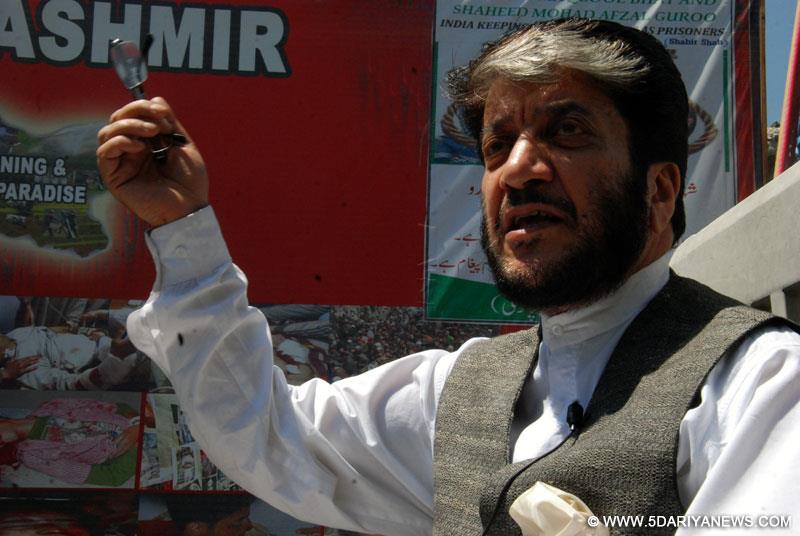
Kashmiri separatist leader Shabir Ahmad Shah has been granted statutory bail by Delhi’s Patiala House Court in a money laundering case under the Prevention of Money Laundering Act (PMLA).
Default bail, also referred to as statutory bail, is a type of bail that becomes a legal right for an accused person in custody. It is granted when the police cannot complete their investigation and file a Chargesheet within the legally specified time frame.
Shah, who was arrested in 2017, received bail as he has already served more than half of the maximum potential sentence for his offense.
The bail requires Shah to post a personal bond of Rs one lakh and a surety bond of the same amount. He is also restricted from leaving the country without court permission. However, despite being granted bail, Shah will remain in custody due to other pending cases against him.
In its decision, the court referenced the Supreme Court’s judgment in Vijay Madanlal Chaudhary’s case. It noted that Shah has been in custody for 6 years and 10 months, which exceeds half of the 7-year maximum sentence for his current charge.
The court acknowledged that although Shah faces serious charges in other cases, being an under-trial without convictions does not justify denying statutory bail. The court indicated that Shah is unlikely to be released before July 24, 2024, when he will have served the full 7-year maximum punishment for this case.
Additionally, the court mentioned the acquittal of Shah’s co-accused, Mohd. Aslam Wani, in all but one predicate offense under the Arms Act.
Shah’s bail application, filed under Section 436A of the CrPC, argued that he has already served more than half of the potential sentence for the money laundering charge under PMLA. His advocates emphasized that Shah has been in custody since July 2017 and would complete his maximum imprisonment period by July 2024.
They also argued that legal precedents indicate Shah should not be subject to the stringent bail conditions under Section 45 of the PMLA. However, the Special Public Prosecutor for the Enforcement Directorate opposed the bail, citing the severity of the allegations against Shah, including involvement in terror financing and generating proceeds from crime.
The prosecutor also expressed concerns about the risk of Shah absconding if released on bail, given his alleged past conduct.




